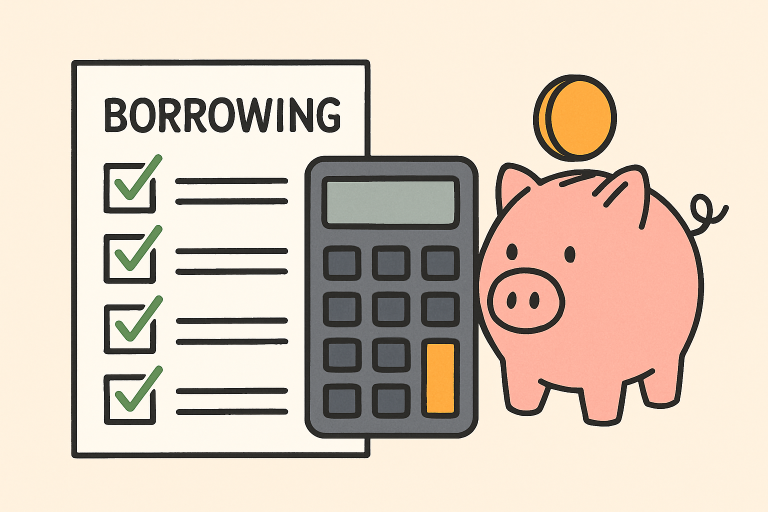Key Takeaways
- Responsible borrowing empowers you to meet essential needs and capitalize on important opportunities.
- Evaluating your financial situation before borrowing is crucial to preventing overextending your budget.
- Clear borrowing goals and well-structured repayment plans can help you avoid the pitfalls of debt.
- Emergency funds serve as critical safety nets, protecting you from unnecessary borrowing in a crisis.
- Regularly reassess your financial plan to keep it aligned with your life circumstances and goals.
Understanding the Importance of Responsible Borrowing
Borrowing money can play a pivotal role in helping individuals and families manage emergencies, make large purchases, or invest in long-term opportunities, such as education or homeownership. When approached carefully and with a plan in place, borrowing can drive upward mobility and provide financial flexibility. For those considering their options, you can easily apply online for a MaxLend loan to streamline the process and understand your potential terms. However, treating debt casually can lead to unmanageable obligations, high-interest payments, and long-term stress.
Reviews and discussions, such as those found in MaxLend reviews, often highlight both the opportunities and responsibilities that come with borrowing, offering real-life perspectives on the impact of loans on personal finances.
According to a report, nearly 70% of Americans say that borrowing improved their finances, underscoring the importance of understanding the terms and impact before committing to a loan. Evaluating the risks and rewards and choosing lenders carefully can make borrowing a tool for growth rather than a source of stress.
Assessing Your Financial Situation Before Borrowing
Before taking on any new debt, a clear-eyed assessment of your current financial picture is essential. This means laying out your income, fixed and variable expenses, existing debts, and savings. Establishing your financial baseline ensures that you avoid overcommitting yourself and remain aware of your actual repayment capacity. For a step-by-step guide on conducting a thorough financial checkup, you can refer to this Investopedia resource.
Understanding these details helps in making realistic borrowing decisions. For example, knowing your debt-to-income ratio—a measure many lenders consider when making loan decisions—can prevent you from borrowing amounts that would be difficult to pay back over time.
Setting Clear Borrowing Goals
Defining a specific goal for your loan—whether it’s funding higher education, repairing a car, or covering unexpected medical bills—helps ensure the borrowed money is used strategically. Clear borrowing goals, structure your repayment plan, and clarify how the loan fits into your broader financial strategy. Vague borrowing (such as “just in case” loans) often leads to haphazard spending and can undermine your financial stability.

Creating a Repayment Plan
Effective debt management starts with a realistic repayment plan. This involves mapping out your monthly payments, determining how they’ll fit with your existing expenses, and considering any expected changes to your income. A reasonable repayment plan ensures you don’t fall behind on payments, which can lead to late fees, higher interest rates, and damage to your credit score. If possible, automate your repayments to avoid missed payments and build discipline into your financial habits.
Building an Emergency Fund
Having an emergency fund is one of the most effective strategies to avoid unnecessary borrowing in the future. By saving three to six months’ worth of living expenses, you provide a financial safety net for unexpected events, such as medical emergencies or car repairs. Not only does this reduce the need to rely on new debt, but it also gives you more confidence when navigating life’s financial challenges.
Monitoring and Adjusting Your Financial Plan
Regularly reviewing your budget and loan commitments is key to long-term financial stability. Changes in income, expenses, or life circumstances might require you to adjust your repayment strategies or negotiate different terms. Setting aside time every few months to assess your financial plan ensures you stay on course and catch potential issues early.
Responsible borrowing isn’t just about getting access to funds—it’s about building and maintaining your overall financial health. By carefully evaluating your needs, choosing the best loan options, and committing to solid repayment practices, you can use borrowing as a positive force in your financial journey.



